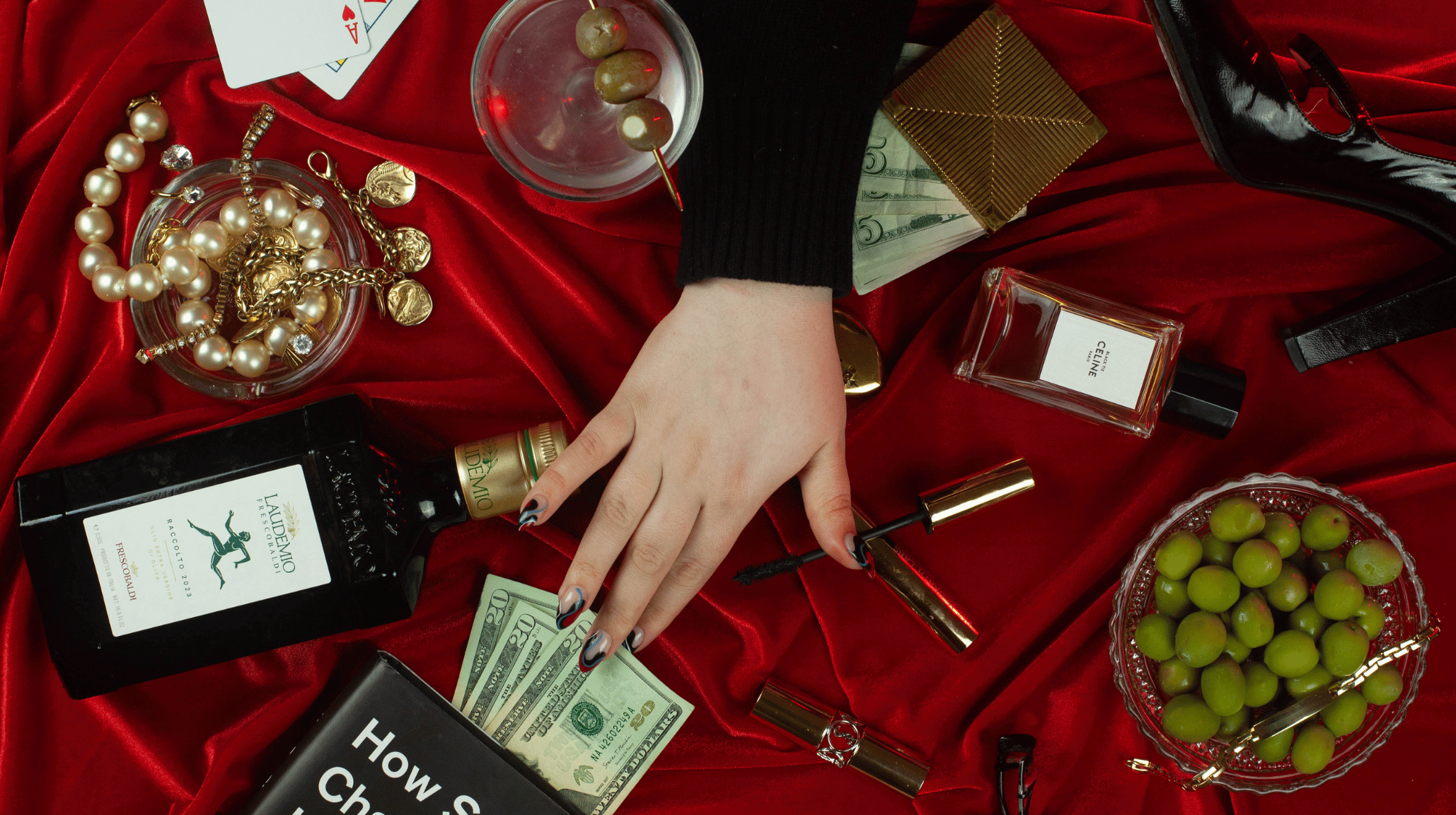Update: 1/9/25- 7PM CST
TikTok has announced plans to shut down its U.S. operations by January 19 unless the Supreme Court blocks or delays a law requiring its Chinese parent company, ByteDance, to sell the platform.
Frank McCourt, founder of Project Liberty, has submitted a proposal to ByteDance to acquire TikTok's U.S. assets, aiming to address national security concerns ahead of a potential ban on the app set for January 19, 2025. The plan, dubbed "The People’s Bid for TikTok," would transfer U.S. users to an American-built digital infrastructure designed to prioritize privacy and transparency, moving away from the existing TikTok algorithm. While the financial details of the offer remain undisclosed, the initiative would require backing from private investors, private equity funds, and debt financing from a major U.S. bank
So yes, TikTok is facing a ban—well, in theory. Let’s break it down and talk about what this could mean for the future of the app and the creator economy. Do I think it will actually happen? No. Here’s why.
National Security Concerns
The ban is rooted in concerns over national security, with lawmakers arguing that TikTok’s parent company, ByteDance, poses a threat by potentially sharing user data with the Chinese government. Whether that’s a legitimate issue or just another round of political posturing is up for debate.
For what it’s worth, I do think there are real security concerns with TikTok—like the 2022 BuzzFeed report that revealed ByteDance employees had repeatedly accessed non-public user information. But here’s the thing: none of the claims lawmakers are throwing around have been backed by actual evidence. Unlike, say, Meta and the Cambridge Analytica scandal. If these lawmakers were genuinely worried about data privacy, they’d pass stronger regulations to protect Americans’ data, especially in pertains to targeted ads.
Legislative Timeline
In March 2024, the House passed the ban, with the Senate following suit and President Biden signing it into law in April. The ban would require ByteDance to sell TikTok to a U.S.-based company—or face being shut down. It’s supposed to take effect on January 19, 2025, but TikTok is challenging the law, citing First Amendment violations.
On January 10, the Supreme Court will hear arguments in two consolidated cases taking aim at the federal law. One case is brought by TikTok and ByteDance themselves, while another case is brought by content creators on the app.
Nobody really knows what will happen if this ban moves forward. With 170 million U.S. users, TikTok is huge. We’ve never seen anything like this happen to a social media platform before in the U.S.. Some experts, like Eva Galperin from the Electronic Frontier Foundation, suggest the government might force Google and Apple to remove TikTok from app stores. That would mean no updates, eventually making the app buggy and unusable. Honestly, this could create even bigger security risks, which feels ironic given the government’s supposed focus on safety.
Another option? The government could make internet service providers block TikTok entirely. But that’s messier and more complicated, since there are so many ISPs. And yes, theoretically, you could still use a VPN to access the app under both these scenerios.

A Complicated History
Of course, this isn’t TikTok’s first rodeo with a potential ban. Back in 2020, Trump issued an executive order demanding ByteDance sell TikTok within 45 days. But his position was all over the place. By March 2020, he was opposing the idea of a ban altogether, claiming it would only help Facebook—an “enemy of the people,” according to him at the time. But Trump's alliances change quicker than the algorithm. It seems Meta’s Mark Zuckerberg and Trump are currently playing nice, given the rollback of content moderation on meta platforms and potential partnerships to fight against governments championing more censorship on social media, per Mark’s recent announcement. And then there’s the old ball and chain Elon.
The Infrastructure Challenge
One of the biggest hurdles to selling TikTok lies in its code structure. TikTok’s algorithms—undeniably its most valuable asset—are deeply embedded within ByteDance’s proprietary technology. Splitting TikTok from ByteDance would be an engineering and logistical nightmare, a process that could take years and cost billions. The code wasn’t designed for easy separation, and attempting to sever it from ByteDance’s infrastructure could significantly disrupt the app’s functionality.
Even if TikTok’s U.S. operations were successfully sold, national security concerns wouldn’t vanish overnight. Lawmakers would likely insist on extensive audits to ensure no lingering connections to ByteDance, further complicating an already challenging process.
Ultimately, TikTok’s value lies in its algorithm. Any degradation in its performance—whether due to a rushed sale or restricted access to ByteDance’s resources—could make the app less competitive, casting doubt on whether a sale is even a realistic option.
The Billionaire Connection
While the TikTok ban has plenty of vocal supporters, there’s a lot happening behind the scenes—especially when it comes to Philadelphia-based billionaire Jeff Yass. Let me break this down because Yass might be the single most compelling reason the U.S. won’t actually ban TikTok.
Yass, a Trump ally and co-founder of Susquehanna International Group, holds a significant stake in ByteDance, TikTok’s parent company. Susquehanna owns roughly 15% of ByteDance, with Yass’s personal share estimated at around 7%. That translates to a staggering $21 billion, based on ByteDance’s $300 billion valuation. And Yass isn’t alone—Arthur Dantchik, another Susquehanna co-founder, and William E. Ford, CEO of General Atlantic, also sit on TikTok’s board. In short, there’s a lot of U.S. money tied up in TikTok.
And Yass isn’t just some guy passionate about dance challenges set to copyrighted music—he’s one of the biggest donors to Republican causes. In 2024, he contributed $46 million. While he hasn’t directly funded Trump, he backed Vivek Ramaswamy during the primaries and has strong ties to the Club for Growth. (If the name didn’t already give it away, it’s a conservative organization focused on tax cuts and economic policy.) After meeting with Trump at a Club for Growth event in 2024, Yass’s influence became clear: Trump’s stance on TikTok shifted shortly afterward.
Susquehanna has also invested heavily in Digital World Acquisition Corp (DWAC), the company behind Trump’s Truth Social. Yass’s firm has been involved with DWAC since 2021, providing Trump with a much-needed financial lifeline as his legal expenses piled up.
If Yass’s money—and the money of other U.S. investors—is at stake, it’s likely lawmakers, many of whom rely on his donations, won’t be quick to cut him off. After all, biting the hand that feeds is a lesson no one wants to learn the hard way.

The Real Impact: Creators and Communities
I cannot overstate the impact TikTok has had on the lives of millions of Americans. I’m deeply concerned about what a potential ban means for the countless people who’ve built brands and careers on the app in truly life-changing ways.
But the uncertainty surrounding the ban is already hitting creators hard. Some have reported drops in income from brand partnerships as companies grow skittish about the app’s future. And honestly? I don’t blame the brands. Why pour money into something that might disappear in a few months?
Still, I worry about what a ban would mean for people who’ve built entire careers here. It’s not just about the money (though that’s a huge part). It’s about losing access to the audiences they’ve nurtured and the creative freedom TikTok uniquely provides. Other platforms—Instagram, YouTube, even Threads—simply don’t replicate TikTok’s mix of algorithmic discovery and cultural relevance.
And what about the millions of users who aren’t creators? TikTok has become a hub for connection, learning, and sharing experiences. Sure, it’s far from perfect (the proliferation of overconsumption content and the app’s role in accelerating harmful fashion trend cycles are glaring issues), but it’s also a vital space where niche communities can thrive.
Losing TikTok feels bigger than just deleting an app—it feels like losing a piece of the digital culture we’ve built together. And, honestly? I fear we haven’t been archiving it well enough.
The future of TikTok is still up in the air, and honestly? No one truly knows what’s going to happen. What I do know is that the app has shaped lives, careers, and culture in ways we haven’t fully appreciated yet. Maybe it’s time we stopped relying on quick fixes like bans and started addressing the bigger picture—because TikTok isn’t the problem; it’s a symptom of much larger conversations about how we navigate the digital world, protect free speech, and ensure data privacy.


.png)







